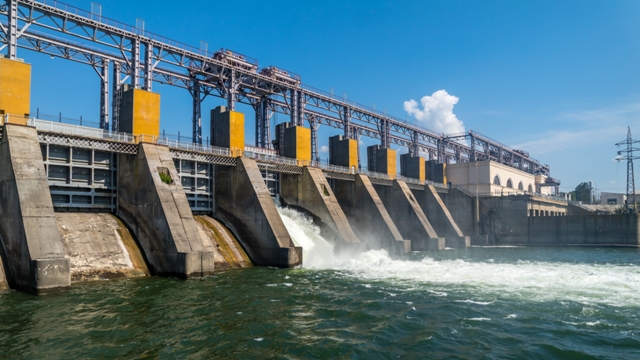
Interprovincial hydro ties will come, even as other renewables see price drops
by Steve Lambert, The Canadian Press

Natural Resources Minister Jim Carr said building a more integrated Canadian electricity grid will become a priority as Canada moves away from fossil fuels

An east-west transmission grid will allow provinces to export and import power from hydro-rich areaas
WINNIPEG—Canada is transitioning away from fossil fuels and looking at more capacity for solar energy, wind power and interprovincial hydro transmission, Natural Resources Minister Jim Carr said Oct. 11.
Carr is hosting a two-day conference on the future of Canada’s energy industry, called Generation Energy, where experts said fossil fuels will have to be phased out by the middle of the century if major countries are going to come close to meeting the emissions targets under the Paris climate change accord.
“I agree that we are in transition. There will be a discussion, among those who make predictions, about the speed of that transition,” Carr said after a morning panel discussion.
“The time frame that I heard this morning was 30 years, 40 years, mid-century, 50 years—which gives Canada and other countries around the world a sense of the way in which transition will unfold and at what pace.”
Carr said energy companies can look at fossil fuels as a legacy part of their business while developing new sources.
The conference was told investments in renewable energy around the world have risen sharply and the cost of producing solar power has dropped in many parts of Europe and other regions.
“In the last three years, solar cost is half (what it was),” said Fatih Birol, executive director of the International Energy Agency, a body set up during the oil crisis of the 1970s that now has 29 member countries, including Canada and the United States.
“We expect in the next three years, between 2017 and 2020, another halving.”
Birol said Canada has already done a lot for clean, renewable energy by building up hydroelectric capacity and there is much more room now for improvements in solar and wind power.
Carr said solar and wind power will be developed, but there is also a federal interest in helping to build more transmission lines so that hydro-rich provinces such as Manitoba and British Columbia can export to other provinces and parts of the United States.
The idea of an east-west power grid was pushed a decade ago by politicians including former Manitoba Premier Gary Doer, but never came to fruition.
“We’re very interested in electricity inter-ties. We have been talking about that with our provincial partners for two years now,” Carr said.
“We seek to work with the provinces to determine what makes sense from their perspective and build out according to the pace that’s comfortable for our provincial partners.”